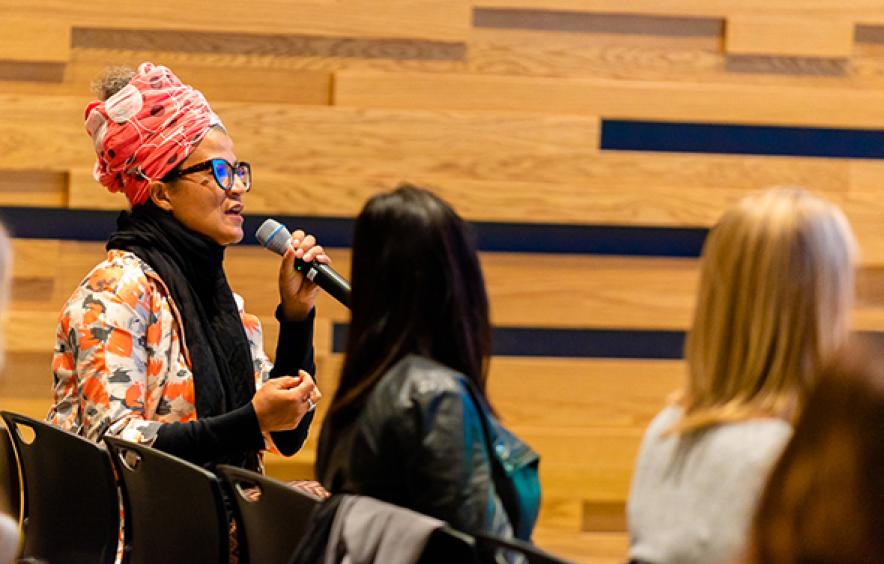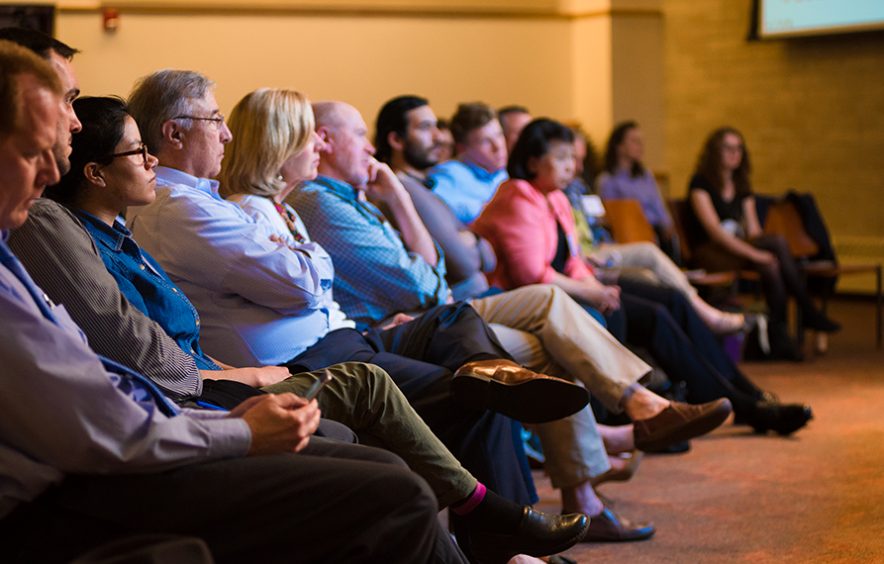Diversity and Inclusion
A Commitment to Social Work’s Social Justice Values
As communities and individuals face new and continued threats of marginalization, discrimination and violence, the Graduate School of Social Work is resolved to uphold its long-standing commitment to core social work values and principles of social justice for all humans, living beings and systems.
We uphold the values and principles outlined in the National Association of Social Workers Code of Ethics.
As social workers, we are charged with:
Enhancing Human Well-Being
Meeting the basic needs of all people, with particular attention to the needs and empowerment of those who are vulnerable, oppressed and living in poverty.
Promoting Social Justice and Social Change
Striving to end discrimination, oppression, poverty and other forms of social injustice through activities including community organizing, advocacy and political action.
Being Active Advocates
Advocating for and with marginalized communities.
Challenging Social Injustice
Promoting sensitivity to and knowledge about oppression and cultural and ethnic diversity.
Encouraging Respect for Diversity
Promoting conditions that encourage respect for cultural and social diversity in the U.S. and globally.





